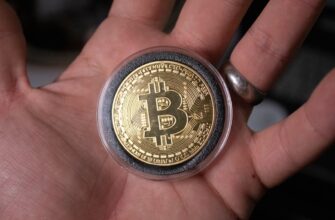- The Growing Demand for Financial Privacy
- Why Avoid KYC? Core Motivations Explained
- Low-Cost Anonymization Methods Without KYC
- Privacy Coin Transactions
- Decentralized Exchange (DEX) Swaps
- Bitcoin Mixing Techniques
- Prepaid Solutions & Gift Cards
- Critical Security Practices
- Legal Considerations
- Frequently Asked Questions (FAQ)
- Is anonymous crypto transactions legal?
- What’s the cheapest privacy coin method?
- Can I convert anonymized funds to cash without KYC?
- Are mixing services safe to use?
- How anonymous are prepaid cards?
- Conclusion: Privacy Within Reach
The Growing Demand for Financial Privacy
In an era of increasing digital surveillance, the ability to anonymize funds without KYC (Know Your Customer) verification has become crucial for privacy-conscious individuals. KYC processes require sharing sensitive personal data like government IDs and proof of address, creating permanent financial trails. Many seek low-cost alternatives to protect their financial autonomy while complying with legal frameworks. This guide explores practical, budget-friendly methods to enhance transaction privacy without compromising security.
Why Avoid KYC? Core Motivations Explained
Understanding the drive behind KYC-free transactions helps contextualize their ethical use:
- Privacy Protection: Prevent third-party data harvesting and profiling
- Security Reduction: Minimize exposure to data breaches targeting centralized exchanges
- Financial Sovereignty: Maintain control over personal assets without institutional oversight
- Accessibility: Serve unbanked populations lacking formal identification
- Censorship Resistance: Avoid arbitrary payment freezes or account closures
Low-Cost Anonymization Methods Without KYC
Several accessible techniques balance privacy and affordability:
Privacy Coin Transactions
Cryptocurrencies with built-in anonymity features:
- Monero (XMR): Uses ring signatures and stealth addresses (Transaction fees: ~$0.03-$0.25)
- Zcash (ZEC): Optional shielded transactions via zk-SNARKs (Fees: ~$0.01-$0.10)
- Method: Acquire through decentralized exchanges or P2P platforms, then transfer via private wallets
Decentralized Exchange (DEX) Swaps
Platforms requiring no identity verification:
- Swap mainstream coins (BTC/ETH) for privacy coins via Uniswap, PancakeSwap, or Thorchain
- Average fees: $1-$10 per swap depending on network congestion
- Use VPN + private browsers to mask IP addresses during transactions
Bitcoin Mixing Techniques
Low-cost solutions for BTC anonymization:
- CoinJoin: Collaborative transactions via Wasabi Wallet (Fee: 0.3% of mixed amount)
- Lightning Network: Off-chain payments with onion routing (Fees under $0.01)
- Self-Mixing: Manually transfer between your own wallets via intermediary coins
Prepaid Solutions & Gift Cards
Physical/digital options for small-scale anonymization:
- Purchase Visa/Mastercard prepaid cards with cash (Activation fees: $3-$6)
- Convert to Amazon/eBay gift cards via platforms like Paxful
- Limitation: Typically capped at $500-$2000 per card
Critical Security Practices
Maintain safety while operating without KYC:
- Always use non-custodial wallets (e.g., Exodus, Cake Wallet)
- Enable 2FA and multi-signature setups
- Route connections through Tor or VPNs
- Verify contract addresses before DEX transactions
- Divide large transactions into smaller batches
Legal Considerations
Anonymization itself isn’t illegal, but context matters:
- Comply with local regulations regarding transaction reporting thresholds
- Never use these methods for tax evasion or illicit activities
- Research jurisdiction-specific laws (e.g., FATF Travel Rule implications)
Frequently Asked Questions (FAQ)
Is anonymous crypto transactions legal?
Yes, using privacy coins or mixers is legal in most countries when not concealing illegal activities. Regulations vary – some jurisdictions require reporting large transactions.
What’s the cheapest privacy coin method?
Monero transactions typically cost under $0.25, making it the most cost-efficient dedicated privacy solution. Lightning Network BTC transfers are even cheaper but require technical setup.
Can I convert anonymized funds to cash without KYC?
Yes, through:
- P2P marketplaces (LocalMonero, AgoraDesk)
- Bitcoin ATMs with under $900 limits (varies by location)
- In-person trades using escrow services
Are mixing services safe to use?
Reputable CoinJoin implementations like Wasabi are generally secure. Avoid centralized “tumblers” which may exit-scam or log data. Always research services thoroughly.
How anonymous are prepaid cards?
They provide pseudo-anonymity. While purchased without ID, transactions may still be traced through serial numbers. Best for small, one-time purchases.
Conclusion: Privacy Within Reach
Anonymizing funds without KYC at low cost is achievable through strategic use of privacy coins, DEX platforms, and mixing tools. By prioritizing security measures and staying informed about evolving regulations, individuals can ethically safeguard financial privacy. Remember: True anonymity requires ongoing diligence – treat privacy as a continuous practice rather than a one-time setup.








